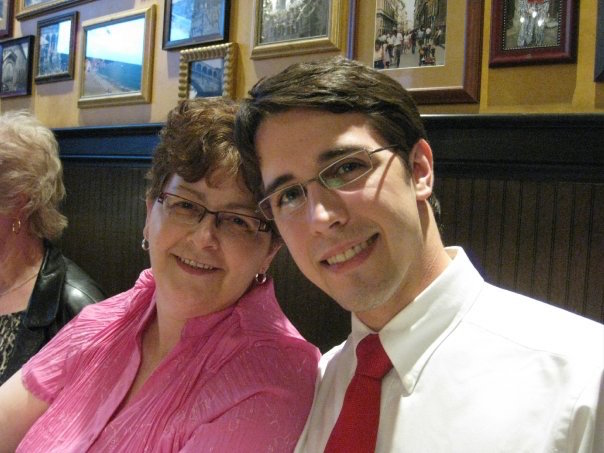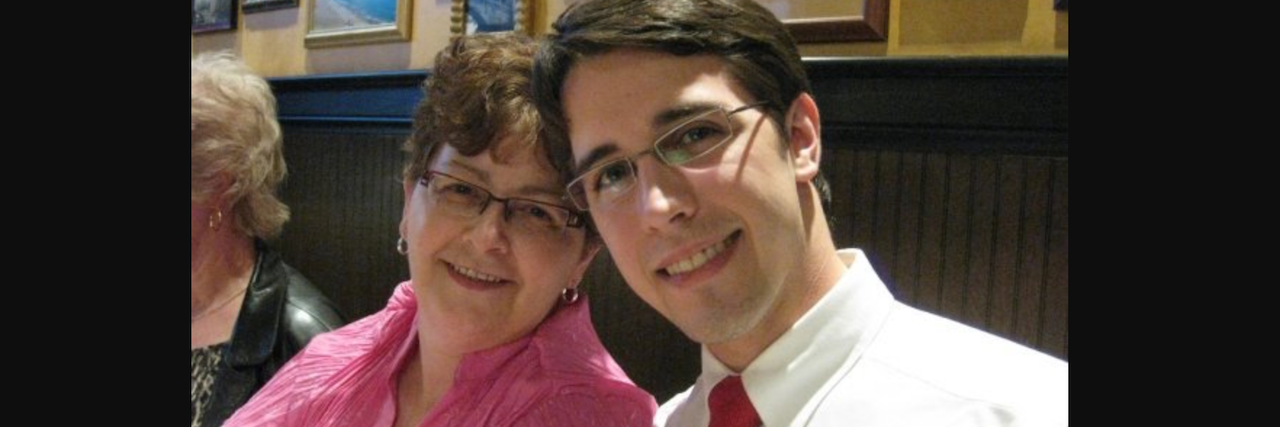It was the last day of June.
My wife and I walked back from the veterinarian’s office, where we had just said goodbye to our long-time family pet. An old, mixed-breed cat, cranky to everyone but me, who had moved to half a dozen new homes with me over the years.
Before we entered our building, something came to mind.
“You know, I can’t remember the last time that I really grieved,” I said.
I had lost my grandmother a little over a year prior, but I had lived away for a long time. She had declined significantly through dementia by the end, and I didn’t really have much contact with her. I was sad, especially for my own mother who was so close to her.
But it wasn’t grief — I’m not sure that I even knew how to do that. I felt silly that losing this old cat who had been with me since high school seemed to affect me so much.
The next day was the first of July, Canada Day. We were hoping to shake off the sadness by participating in some of the day’s festivities.
Shortly after getting out of bed that morning, the phone rang.
My wife accidentally answered on speakerphone and fumbled around to switch it back. Before doing so the voice on the other end, my sister’s husband, spoke uncertainly.
“I’m sorry to tell you, your mom passed away last night.”
“Hang up the phone,” I said sharply.
I was instantly offended that anyone could play such a cruel prank. After our years of shared struggle, my mother was the closest person I had. Each of the half-dozen or so times she had to leave home to find somewhere happier, safer, it was always she and I who went together. She was the only one who got me, and everyone knew it. She was off-limits.
My wife finally managed to switch the call back from speaker and listened, her face as set and pale as limestone.
I felt my heart beat in my chest, hard, exactly six times.
Then it stopped. So did the rest of the world. My skin went cold.
Mom was 58.
Everybody knows it’s going to happen eventually. While we never seem to fully expect or believe that it will happen, we certainly don’t when it’s 20 years ahead of schedule with no warning.
The death of a parent can mean as many things to as many people who experience it.
For many it provokes grief, for some more intense than others. For some it’s a measure of guilty relief. For all its costumes; there is no right way to grieve. Trust me, self-styled, intellectual types like myself have been unsuccessfully groping around for it for centuries.
For all of us, however, it’s a reminder of perhaps the oldest and only absolute truth.
As certainly as we’re born, we will die.
I’ve spent more than half my life as a participant in the mental health sector — both as patient and professional. For the average person, the concept of parent is among the most profound and complicated.
Everything we are, everything we know for sure, for better or worse, has been germinated within at least the idea of a parent.
The boring little suburban family that still manages to manufacture enough relative melodrama to fill that necessary space in the home. The single working mother who sacrificed a life with her children in exchange for their being able to eat. The accidental father who wants to do right by his kids but paradoxically wrongs them as a means to this end. Same-sex parents, adoptive and foster parents, grandparents and more are not exempt from influence.
All of these that unleash children into the world share a little piece of their family psychology, and of themselves. We usually discover it most offensively when something changes, strips us of all pretension, and lays our basic inner workings bare.
Should we ourselves become a parent, in blood or name, our past becomes doubly weighty.
At the same time that we’re juggling our relationship with our own parents, we’re crafting our own. Usually we do unto ours that which was done unto us. We repeat the refrain we know. Of course, we convince ourselves it’s different this time, every time. Lather, rinse and repeat.
Immediately following the sudden death of my mother, I found myself deciding whether or not I would step off the platform edge into the path of the oncoming subway train. This was my silent choice, twice a day, everyday, for three months.
This part wasn’t new.
As a teen, my mother made up the hours she missed at home by spending them with me in emergency rooms. I was diagnosed with depression and an anxiety disorder in early junior high school, following a suicide attempt. Having not received much in the way of follow-up care or community or family support, I found myself in the hospital so often for suicidal ideation and attempts that they knew me by my first name.
But here I was all these years later, seemingly against every learned emotional impulse in my body and mind, I chose to stay alive no fewer than 180 times in three months.
What changed?
Occasionally we mindfully inch our toes beyond the iron-clad walls of that which is expected of us. We create our own new patterns, anchored in the only life we knew.
I was a parent this time, to start.
Mom was by my side in the delivery room when our son, her fifth and youngest grandchild, came into the world with no lack of dramatic flare, only about a year and a half prior. For much of the labor, she sat quietly scribbling down nursing notes on some scraps of paper in her pretty, even script. She wasn’t working, it was just a thing she did. She wanted us to have these written memories later, so we could be in the moment then.
Now I had a new set of expectations, obligations and desires. The best way I’ve found to cast a different light on that which has become old is to build something new.
But it was more than this.
There was still that old voice, the voice of depression, that sometimes whispered from the dark corners of my memory for me to end my life. But now there was also a newer voice in me that knew I didn’t have to. This was my voice, and it was louder.
We need to reframe the story of our past as a high floor, rather than a low ceiling. It can help us to stand a little taller. It can help us to take what we all already have and make something new from it.
Sometimes, hope can be found in how you use the pattern you have to create the one you want.
My mother and I spoke by phone the night that she died. She comforted me, in the way that only a mother can when her little boy has lost his pet.
We ended that call with the same words we had for years, for my whole childhood, and all the years after. They’re the words that have become for me a pivot point, from my past to my future. They’re words that have become my own philosophy for parenting, for continually recovering, and for letting go of the past.
“I love you, goodbye.”

If you or someone you know needs help, please visit the National Suicide Prevention Lifeline. You can also reach the Crisis Text Line by texting “START” to 741-741. Head here for a list of crisis centers around the world.
The Crisis Text Line is looking for volunteers! If you’re interesting in becoming a Crisis Counselor, you can learn more information here.

